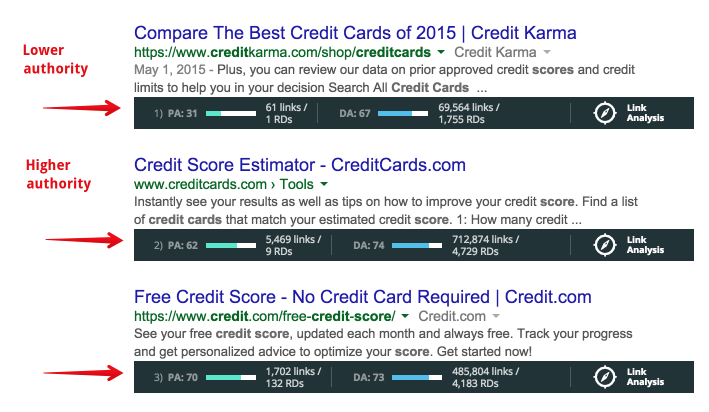
Imagine this. You’re an entrepreneur with a hot new product. You’re about to launch your website, sell your product, and change the world.
All you need to do is get your website up and running. Oh, and you need to get it to rank, too.
So, how are you going to do it?
Is it possible to create a new website and start ranking on the first page of Google in just a few weeks?
The old-school SEO companies used to claim they could get a “first position” ranking for your company. Today, the SEO game is much different. You can’t guarantee or get first-page ranking with the same bag of black hat tricks. Today, there’s a new content-driven, user-focused approach to SEO.
The process is different, but it is still possible to get your website ranked quickly. I’ll explain how.
Know What You’re Targeting
First, you need to define what it is you’re trying to rank for. There is no such thing as simply ranking. You have to rank for a given keyword.
As you prepare your site for first-page success, decide what keywords you’re trying to rank for. I recommend selecting a few long tail organic keywords. Long tail keywords consist of more than four keywords. They provide the best level of focus and concentration for your site’s SEO.
Marketing Hub wrote a succinct post that defines long tail keywords and factors that proves its power.
According to Moz’s research, long tail queries account for more than 80% of all organic traffic on the Internet.
Here’s why this is important. If you want to rank for a head term, you have virtually no chance of ranking, let alone in the first few weeks of your site’s existence. For example, let’s pretend you want to rank for the term “mobile phone”.
Based on a keyword grading analysis from Moz, this is a hotly contested term.
The sites on the first page of Google have extraordinarily high Domain Authority — as high as 100 (Wikipedia) and 95 (Samsung). You don’t stand a chance.
But why would you want to target a word like that anyway? According to research, longtail keywords have more impressions, more clicks, and more conversions.
That’s what you want, right — more impressions, clicks, and conversions?
If so, then it’s in your best interest to choose a longtail term.
If you want to rank on Google, first define what keywords you’re targeting, and then you can move on to the tactical methods described in this article.
Make Sure You Have a Search Optimized Foundation
The foundation of great SEO begins with a good CMS (content management system), and a good website.
I recommend you build your site using WordPress. WordPress is the world’s most popular CMS for good reason. It’s intuitive, powerful, customizable, and provides a great platform for SEO.
WordPress by itself, however, doesn’t mean that your site will be optimized. You must select a WordPress theme. A theme is the way that your website looks, and how it works.
Tips for selecting a theme:
- Use a theme that has good support. You can probably find a bunch of free themes, but they may not have the level of support you need.
- Select a theme that is lightweight and fast. Site speed is a critical SEO factor, so you want to choose a theme that does not have bloated code. I’ve found the Genesis Framework by StudioPress to have some of the best and strongest coding.
- Choose a mobile optimized theme. A mobile and responsive site is now a requirement for search optimization. According to Google’s mobile algorithm, a site that is not mobile friendly will not be as likely to appear in mobile search results.
Once you’ve got the right theme, I recommend you conduct the next step — installing an SEO plugin. An SEO plugin like Yoast doesn’t do SEO for you. It simply makes it easier for you to do SEO.
Yoast is my choice for SEO plugin, because it provides full functionality for most of the critical SEO elements (apart from SSL and caching, which are handled by other plugins).
I consider these three features — the right CMS (WordPress), the right theme (your choice), and the right plugin (Yoast) to be foundational to a search optimized site. You don’t have to take my recommendations regarding CMS or plugins. If you follow the steps below, you’ll still be able to rank on the first page of Google.
Don’t Allow Your Site to be Indexed Until it’s Ready
Your new website is like a Christmas present. You want it to be wrapped up and put under the tree until it’s time to open it up.
Like a good Christmas present, you don’t want anyone to see it until it’s time to be opened.
To do this for your website, you can create a robots.txt that tells the search engines not to crawl your site. You may also add a noindex and nofollow tag to the site’s header. In WordPress, you can do this by adjusting the site’s privacy settings. Your website hosting provider may even allow a cPanel password protection if you want to add another layer of access security to your site.
The moment you want your site to be live, you should remove these tags (and the password), and let the indexation begin.
Create a Ton of Content
This is where the true SEO power is — creating content. Content is what makes the search world go around.
The most powerful way to propel your site to the top of the SERPs is by developing a lot of content before you let your site get crawled and indexed.
I recommend creating long form content. The exact definition of “long” is debated. Most people agree that long form content is an article or page consisting of 2,000 words or more. What’s indisputable, however, is the impact that long form has in the search results.
- SerpIQ discovered long content is correlated with higher search results. In other words, the more content on a page, the higher that site ranked in the search engines.
- When Moz measured word count and search ranking, they found a similar trend. Longer content received better indexation, higher ranking, and more backlinks — all ingredients to a successful website.
- My research and testing corroborated these findings. Long content like the kind I publish on my blog gets stellar rankings, compared with equivalent and high-quality content of a shorter length.
To help your website get ranked quickly, here is what you should do:
- Create at least 25 longform pages.
- Make each page focused, high-quality, and relevant for your target audience.
- Use keywords or semantic variants in the page titles.
- Make these pages 2,000 words or longer.
Once your site goes live, it will make a major indexation splash, and start to soar in the SERPs. Even though many SEOs know that longform content works, it’s hard to actually do the hard work of creating it.
If you do the work of creating the content, then the search engines will find you and rank you accordingly.
Keep Creating Content
Don’t simply create the content and stop. Keep at it.
The search engines reward websites that have a regular output of high quality content. Based on Moz research, the freshness of your content influences its ranking.
One of the things working in favor of a new website is the fact that it is new. Due to Google’s algorithm, newer websites — or recently updated websites, to be more precise — are likely to edge out more authoritative sites that publish content less frequently.
As an example of this, check out the following SERP (with scores from Moz). The top ranked page for “credit card score” is a page on CreditKarma.com. Notice that this page outranks both CreditCards.com and Credit.com. Why is this the case?

One reason is CreditKarma.com has been updated in the last two weeks. The other two sites have not been updated recently. Even though they have hundreds of thousands more backlinks, double the page authority, and more rank, CreditKarma steals the show. Even though it’s the new kid on the block, it gets higher ranking due to regular updating.
The takeaway is straightforward. Even though you may gain great ranking, you cannot rest on your success. You must continue to create great content if you expect to maintain your position.
Promote Your Content
Finally, you need to get people to read your content.
Many times, a site won’t get recognized by the search engines until it gets recognized by users. Why is this the case? It has to do with the impact of user metrics on search ranking.
When Google ranks a site, it does so based on more than 200 factors. One of those factors is <i>how many people click the site in the SERPs. The number of people clicking your site from the SERPs isn’t any secret. You can find out yourself using Google webmaster tools.
Moz considers this to be one of the top ten categories of the Google algorithm.
The more people you have looking for and clicking on your site, the better your ranking.
This introduces a bit of circularity into the issue. In order to get high rankings, you must have a lot of searches and visitors. But in order to get a lot of searches and visitors, you must have high rankings. Which comes first? How do you jump into the cycle?
The answer lies in promotion. Don’t simply publish content and expect it to magically become an overnight sensation. It’s up to you to promote it.
How do you promote it? The goal of promotion is to get eyes on your content. People need to see it, read it, click it, share it, interact with it, comment on it, copy it, email it, etc.
Here is what you can do:
- Facebook ads/promoted posts
- Email newsletters
- Sharing it with influencers and asking them to share it on their social networks
- Posting it on Facebook
- Posting it on Twitter
- Posting it on Google+
- Posting it on LinkedIn
- Posting images on Pinterest
- Posting it on industry forums
- Posting it in comments
- Promoting it using PPC
- Syndicating it
Don’t do anything dumb like buying links on Fiverr. Instead, go through the typical social and sharing channels.
Notice again, the algorithmic factors analyzed by Moz. Directly underneath “user usage” is the category, “Page-Level Social Metrics.”
Page-level social metrics are things like Twitter and Facebook shares. The more social signals that circulate around your page, the better it’s going to rank. You can impact this significant algorithmic feature by promoting your content as hard as possible.
Conclusion
Ranking on Google isn’t complicated. The fact is, not a lot of people are willing to put in the hard work required to make a ton of high-quality content. It is demanding, but successful. Start with right foundation, and start pushing out the best content you possibly can.
Have you helped a new website rank quickly? If so, how did you do it?
To view the original article Click Here

No comments:
Post a Comment